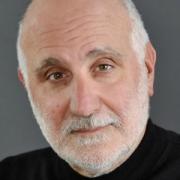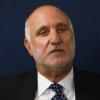Within a few years, much of what doctors, lawyers, engineers, computer scientists, and professors — among many other professionals — do will be extended and replaced by smart machines. There will be a fundamental change in the definition, development, and deployment of "expertise." After an initial period of resistance (and some hysteria), we will welcome the capability and accessibility of our smart digital friends with open arms. In fact, we already desperately need them.
So maybe MDs, JDs, and PhDs have something in common after all: the "D" in their lofty titles will soon stand for "Digital" — and these digital professionals will actually be accessible. Appointments will happen instantly and continuously, and they will tirelessly work to solve our most pressing problems.
We've already seen the undeniable trends. Mayo Clinic and PatientsLikeMe, along with many other websites, provide information to doctors and patients alike, 24/7. They're always there — and they're smart. Diagnostic tools such as WebMD and Isabel Healthcare have "symptom checkers" that allow anyone to describe their medical symptoms and receive (free) possible diagnoses in seconds.
In fact, in many domains, machines are smarter, faster, and more objective than humans. They also receive no incentives for prescribing medication or seeing as many patients as they can in an hour — at least not yet (though maybe they'll hold out for more cloud racks and cleaner electricity).
Ian Steadman, writing in Wired, notes:
According to Sloan-Kettering, only around 20 percent of the knowledge that human doctors use when diagnosing patients and deciding on treatments relies on trial-based evidence. It would take at least 160 hours of reading a week just to keep up with new medical knowledge as it's published, let alone consider its relevance or apply it practically. [IBM's] Watson's ability to absorb this information faster than any human should, in theory, fix a flaw in the current healthcare model. Wellpoint's Samuel Nessbaum has claimed that, in tests, Watson's successful diagnosis rate for lung cancer is 90 percent, compared to 50 percent for human doctors.
Digital reasoning also extends to law: LegalZoom and Rocket Lawyer already disintermediate lawyers. As Nathaniel Burney writes in The Criminal Lawyer:
A huge amount of the law really is formulaic. Whether it's tax law, or commercial law, criminal law, or what have you, a lot of it breaks down to a series of "if-then" statements. So can software really replace what lawyers do? Actually, yes. It can replace a lot of what judges do, too, for that matter.
Personalized education, like personalized medicine and law, is also only algorithms and mobile devices away. Online education is exploding at all levels (though there are huge issues regarding access and dropout rates, especially among students of color, that must be addressed). This is phase one. Soon Siri-like professors will work closely with students to find their optimal path to learning.
It turns out that nearly all so-called if-then deductive inference problems can be solved faster, cheaper, and more accurately by machines than humans (once humans get the knowledge and if-then processing power into them). But these are early stage "prototypes," right? No. They represent an unstoppable digital trend to digitize expertise and put it to work at a fraction of the cost — and orders of magnitude of improved efficiency — of our MDs, JDs, and PhDs.
What's different now is that we desperately need smarter and smarter machines to diagnose cancer, administer the law, educate us, reverse climate change, predict pandemics, keep bees at work, and avoid nuclear disasters. We need to rely on smarter and smarter machines to solve the problems that smart, dedicated human teams have been unable to solve for decades.
[For more from the author on this topic, see "Five Enablers of Web Ubiquity."]



